Mental Health Issues are Pervasive in Skateboarding. What Can We Do to Help?
I started working on this article a few months ago after learning about the death of Henry Gartland, a 21 year old Santa Cruz am that seemed to be hurdling toward a promising professional skateboarding career. To the outside observer, it seemed like Henry was achieving his dreams. But the shock and heartbreak that followed his death was another reminder that appearances rarely reflect an authentic emotional state.
Shortly after, a close friend I grew up skating with was shot and killed by police on the Seattle waterfront while experiencing a mental health crisis. Derek was a sensitive, smart, compassionate human that like many of us, struggled at times. Processing that one has taken time. But May is Mental Health Awareness Month so we out here! As a person who has struggled with mental health for most of my life, I feel a huge responsibility to helping other people navigate these issues.
Sadly, that was far from my first experience with losing a good friend to depression and/or addiction. When something like this happens, you ask yourself a lot of questions. What happened? What could I have done to help? Did I fail this person? How long had they been suffering so bad?
Mental health is the ultimate foundation. During times of depression and anxiety, it’s much harder- often impossible- to build & maintain a positive, productive life. Without a solid base, there’s a good chance your house will eventually fall down. But it is possible to go in there and add some braces and support beams. Jack that puppy up and stabilize!
When people write about mental health, there is almost always an 800 number included, which is good. But what works for one person might not for another, and we need other options. It’s pretty much a consensus that a good first step is to start and foster a conversation within your community, and a few skater-led organizations (see below) have started doing just that.
With the intention of participating in this very important convo, I randomly reached on instagram inviting some people to comment. The reactions I received totally exceeded my expectations; the new skateboarding paradigm cares deeply about this subject. Learning that people who you love and respect struggle in a similar way stirs up feelings of validation and HOPE. Thanks so much to those who provided their thoughts, let’s keep it going. Take the time to check in with someone you love today. We really are all in this together. -Migz
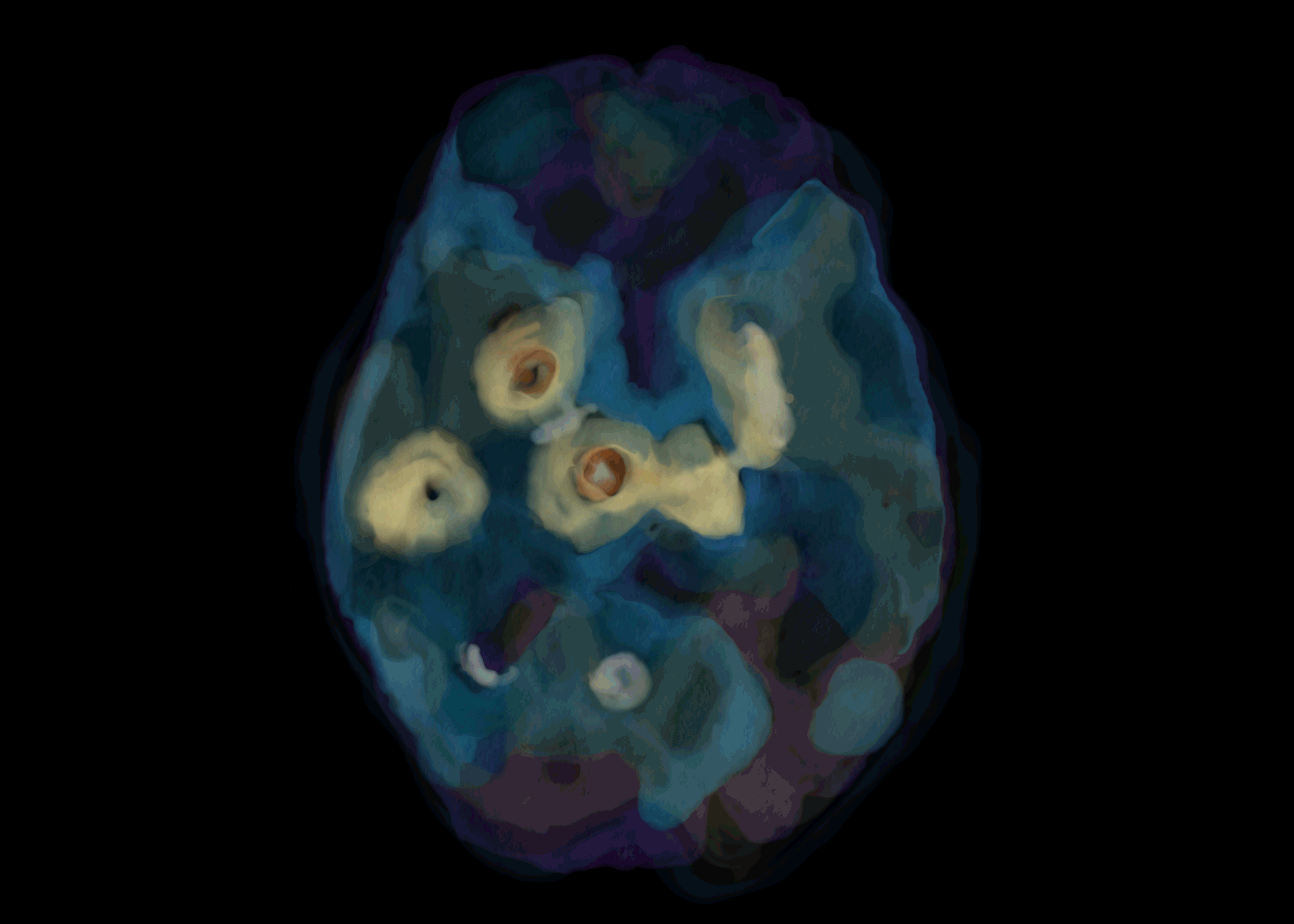



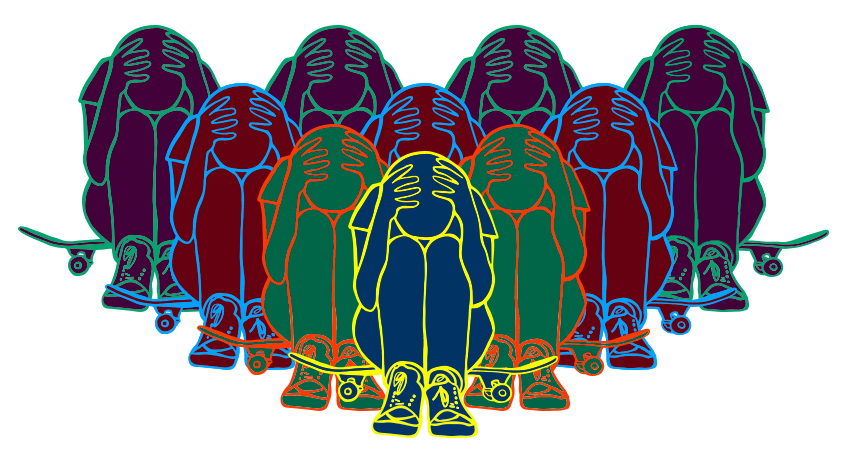
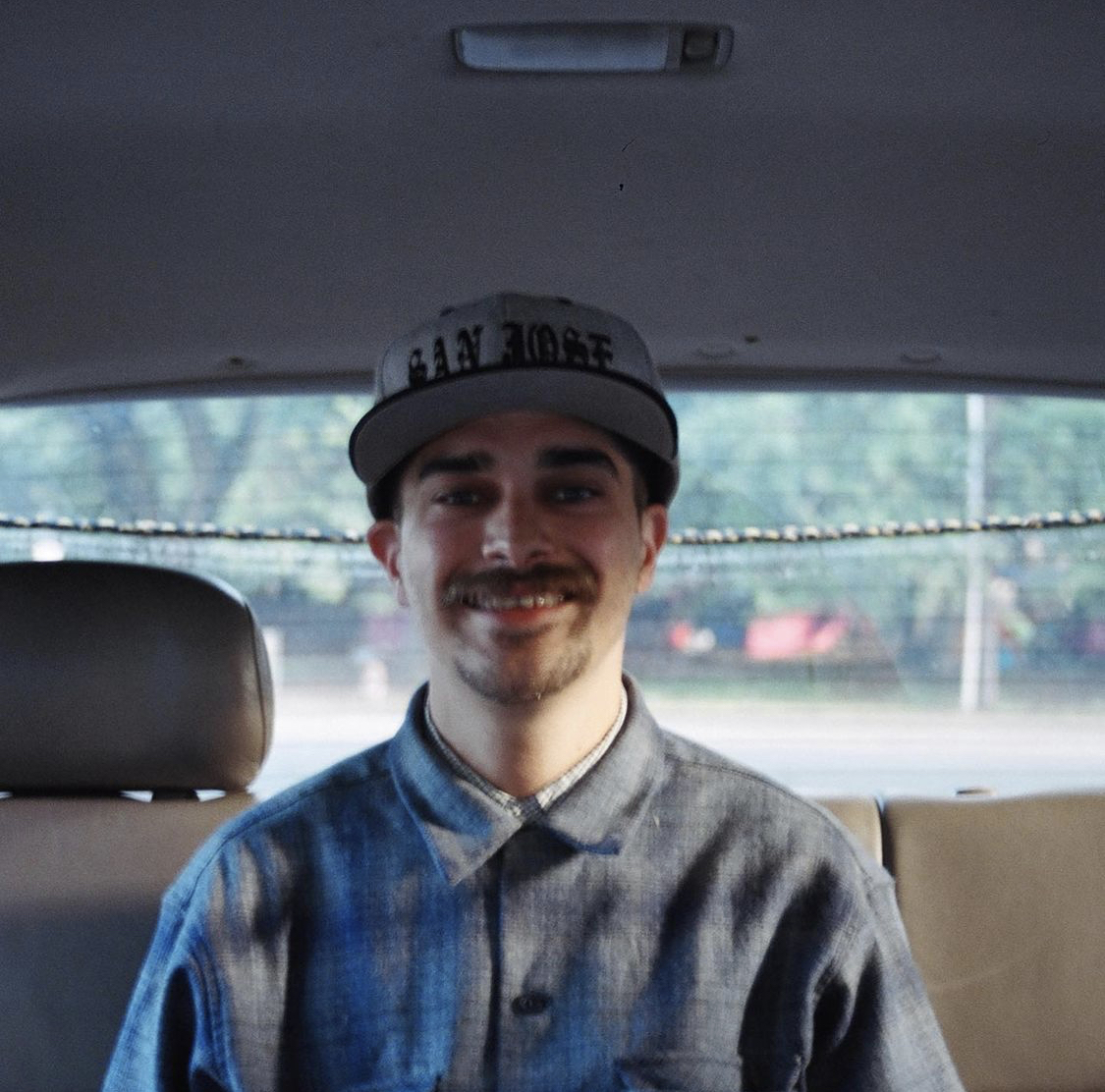
 mental health is just as important if not MORE than your physical health, I say that cause the fact that literally your brain chemicals can also affect your physical health. So being ill mentally can make you both as well. Depression, anxiety, ptsd, and other mental illnesses are pretty stigmatized and people are uncomfortable to talk about it. We have to normalize speaking on this topic so we can save lives. If you are ever struggling know that you are NOT alone. I promise. First hand. Been to that point before myself. Please reach out to a loved one or hotline. I’m always available to reach as well as @apositiveseed our roots are in skateboarding but it’s a much bigger picture, spreading mental health awareness, planting seeds of growth/ healing/ positivity in yourself and onto others. Please reach out to us. Much love
mental health is just as important if not MORE than your physical health, I say that cause the fact that literally your brain chemicals can also affect your physical health. So being ill mentally can make you both as well. Depression, anxiety, ptsd, and other mental illnesses are pretty stigmatized and people are uncomfortable to talk about it. We have to normalize speaking on this topic so we can save lives. If you are ever struggling know that you are NOT alone. I promise. First hand. Been to that point before myself. Please reach out to a loved one or hotline. I’m always available to reach as well as @apositiveseed our roots are in skateboarding but it’s a much bigger picture, spreading mental health awareness, planting seeds of growth/ healing/ positivity in yourself and onto others. Please reach out to us. Much love


THE MENTAL MAKEOVER
As someone who has been doing therapy weekly for 5 years, I try to relay information I learn to friends, saving the time and money a professional requires! So here’s a couple nuggets that have helped me. When you are experiencing that horrible dark cloud, treat yourself the same way you would treat a friend. When someone you love makes a mistake, goes through a breakup or just feels like shit, you would treat them with total compassion and understanding, right? Most importantly, when things get really tough you gotta just

- Go skate
- Make sure you're getting enough sleep
- Eat a healthy meal
- Reach out to a friend
- pet a dog
- pet a cat
- Seek Professional help
- Call a family member
- Read a book or magazine
- Limit alcohol
- Work out
- Drink water
- Go to a museum
- Do some art
- Listen to your favorite song
- Listen to a podcast
- take a shower
- Volunteer for something
- Take a walk
- Plan a trip
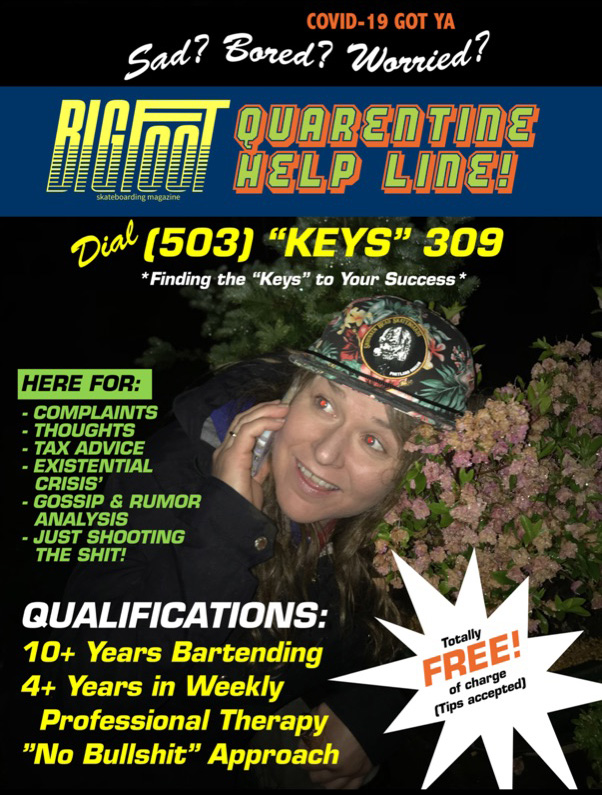
RESOURCES FOR A MENTAL WELLNESS- SKATER SPECIFIC
Created in the memory of professional skater Ben Raemers. Social media content created to raise awareness of mental health issues, films highlighting skater’s personal journeys in mental health, and suicide prevention training for skate teams and crews, managers, professional skateboarders, photographers and skate shops across the globe.
Striving to advance research, safety, and education around the complexities of the human brain, specifically Traumatic Brain Injuries, in the memory of Henry Gartland.
A campaign created by skateboarder and advocate for mental health awareness, John Rattray in the memory of his sister. John uses his voice to enact positive change and help open up the conversation about suicide prevention in skateboarding and elsewhere.
A movement that raises awareness by spreading positivity in the world and inspiring other people to do the same, created by Michigan skateboarder Christiana Smith. An all-inclusive community and resource for skaters and non-skaters, with the mission of creating positively directed vision and actions.
RESOURCES FOR A MENTAL WELLNESS- GENERAL
The National Suicide Prevention Lifeline is a national network of local crisis centers that provides free and confidential emotional support to people in suicidal crisis or emotional distress 24 hours a day, 7 days a week. We’re committed to improving crisis services and advancing suicide prevention by empowering individuals, advancing professional best practices, and building awareness. 1-800-273-8255
OK2TALK is a community where teens and young adults struggling with mental health conditions can find a safe place to talk about what they’re experiencing by sharing their personal stories of recovery, tragedy, struggle or hope. Anyone can add their voice by sharing stories, poems, inspirational quotes, photos, videos, song lyrics and messages of support in a safe, moderated space. Web and phone resources 1 (800) 273-TALK.
SAMHSA’s National Helpline, 1-800-662-HELP (4357), (also known as the Treatment Referral Routing Service) or TTY: 1-800-487-4889 is a confidential, free, 24-hour-a-day, 365-day-a-year, information service, in English and Spanish, for individuals and family members facing mental and/or substance use disorders. This service provides referrals to local treatment facilities, support groups, and community-based organizations. Callers can also order free publications and other information.

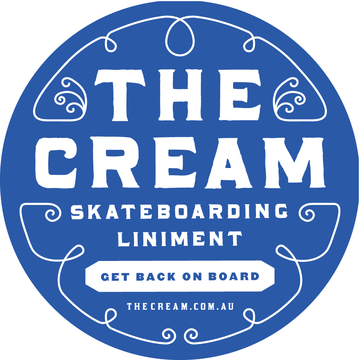
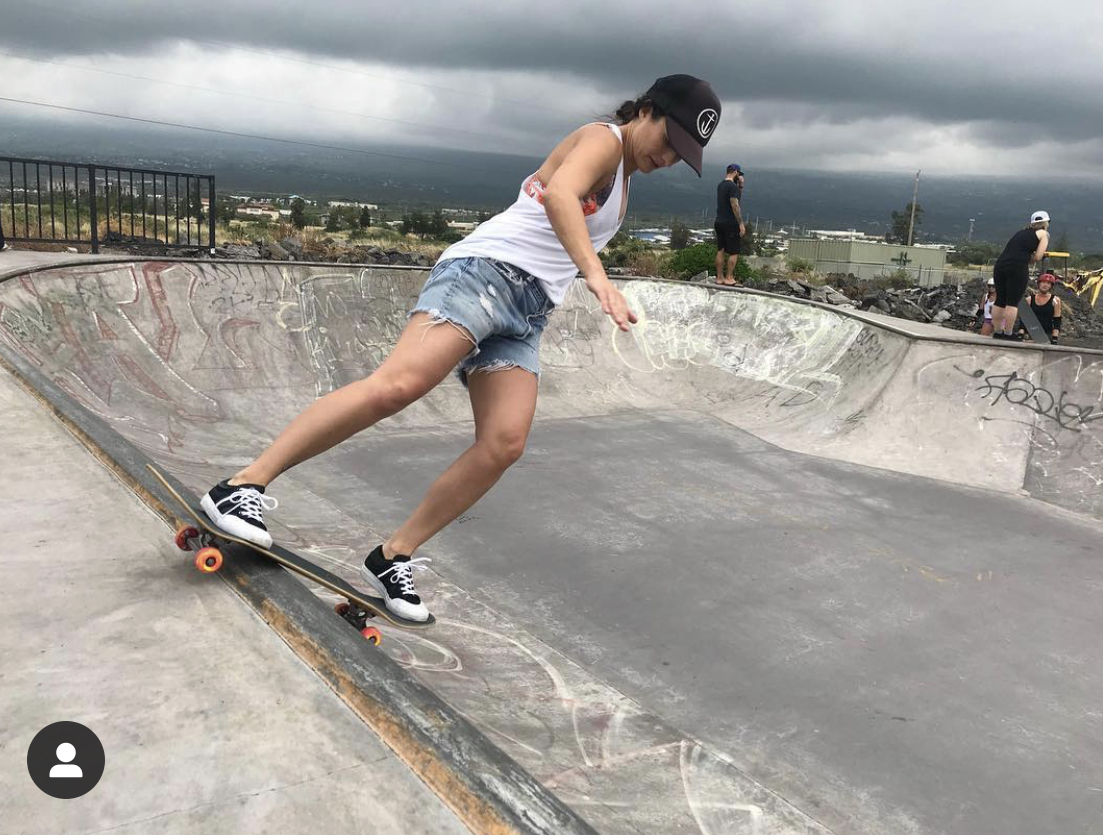
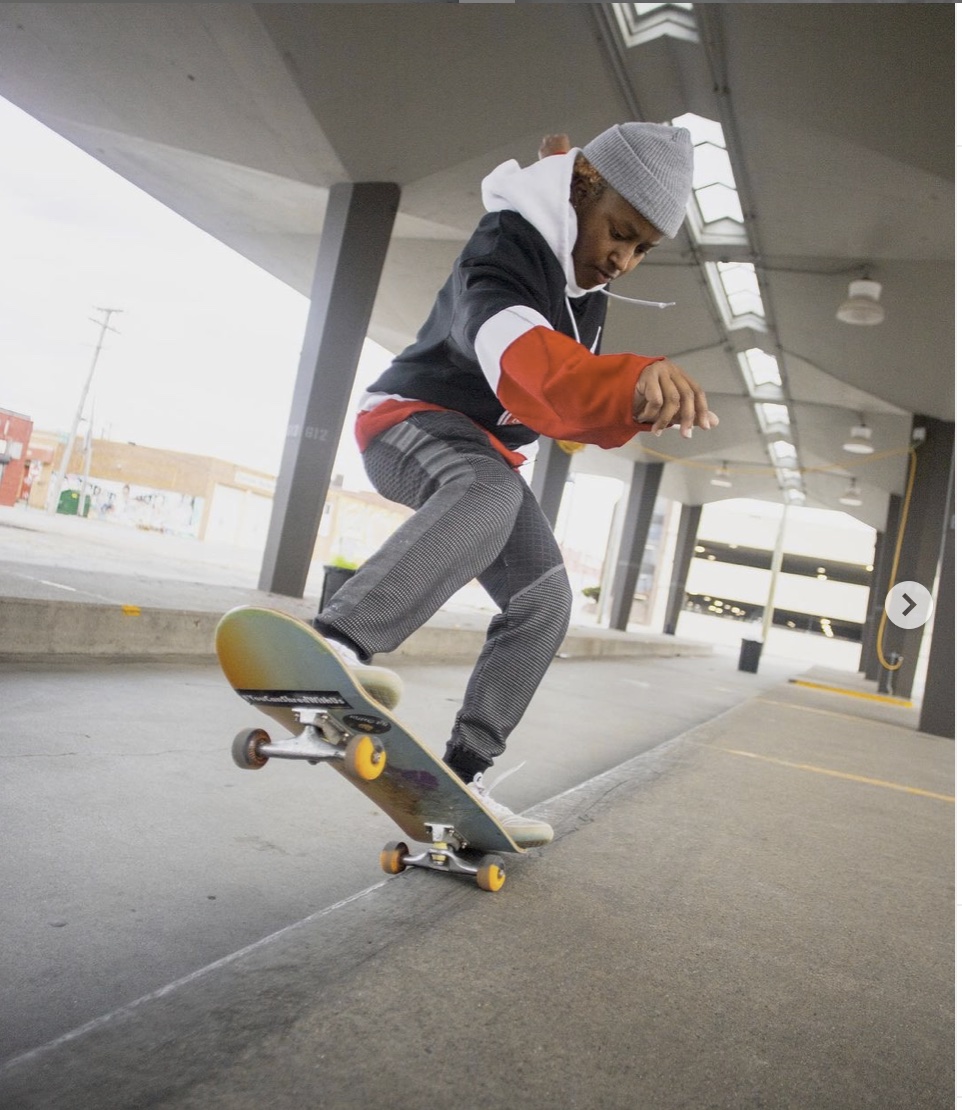






 bigfootskatemag.com
bigfootskatemag.com
 SEE YOU SATURDAY at JEFFERSON SKATEPARK!
Lear
SEE YOU SATURDAY at JEFFERSON SKATEPARK!
Lear



 @moniques
@moniques